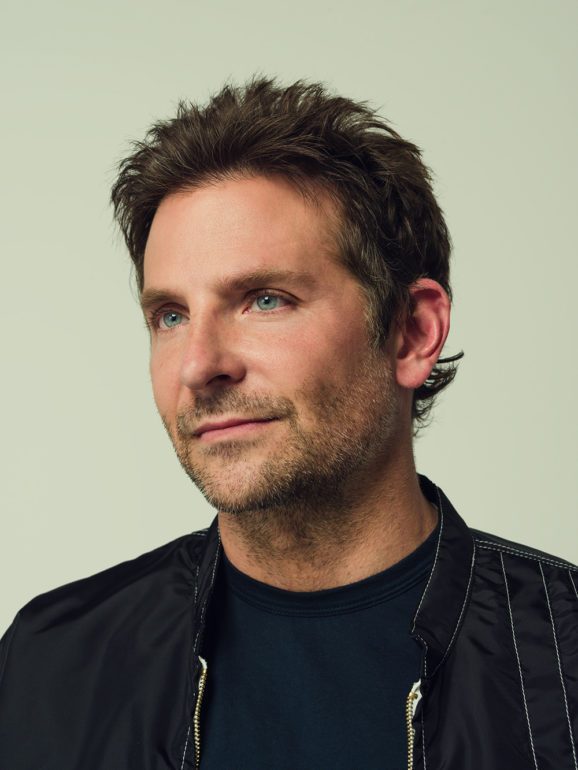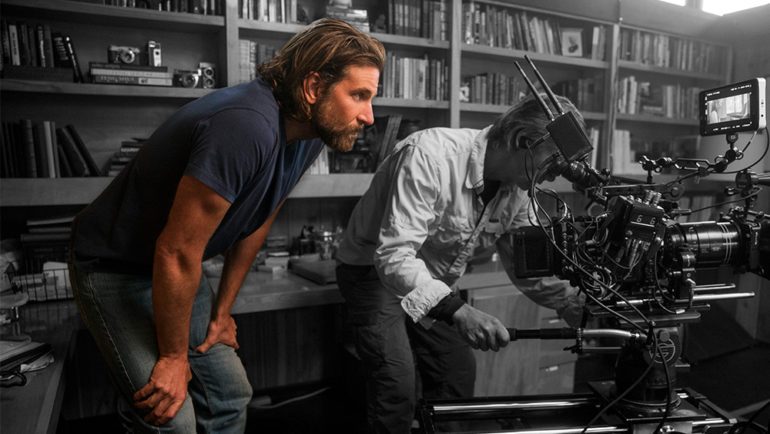Listen: Bradley Cooper Explains Why ‘A Star Is Born’ Lured Him to Direct
By Kristopher Tapley
LOS ANGELES (Variety.com) – PLAYBACK is a Variety / iHeartRadio podcast bringing you conversations with the talents behind many of today’s hottest films. New episodes air every Thursday.
Bradley Cooper’s directorial debut “A Star Is Born” has taken on a life of its own. After a world premiere at the Venice Film Festival, which included a technical snafu that caused a mid-screening delay (torture for Cooper at the time), the film launched into release and has gobbled up nearly $200 million in domestic box office receipts, with another $160 internationally. Eager to transition to the role of filmmaker, inspired by short films from masters like Martin Scorsese (“Life Lessons”) and Wes Anderson (“Hotel Chevalier”), Cooper found in the time-tested property an opportunity to explore many of the themes that spoke to him.
Listen to this week’s episode of “Playback” below. New episodes air every Thursday.
Click here for more episodes of “.”
“I wanted to tell a love story between people who actually love each other, and there’s no infidelity, and still how hard it is,” Cooper begins. “I wanted to tell a story about what it’s like growing up and dealing with your childhood and things that occur and how does that influence who you become as an adult? I wanted to examine things about finding your voice in this life. ‘’ was the perfect sandbox, paradigm, playstation to examine all those things, because the thing that would prevent me from being inauthentic is that these two characters sing, and you can’t fake it when you sing. It’s impossible, because your voice is the first thing that goes when you’re not connected to yourself. So I loved the idea that these two characters were expressing themselves through singing, that I would have a beeline right to their soul.”
The story has been told through the ages, beginning with the 1937 original. But would it work today? SPOILERS if you haven’t seen any iteration, but the story of a man who becomes depressed that he’s overshadowed by a woman, kills himself, and then she takes his name — that’s a tricky road to navigate in 2018. But those elements faded somewhat in Cooper’s natural take on the material.
“I liked this idea of a guy who looks so much like a man — he’s everything you would want to be as a man when you’re young — but he’s a child,” Cooper says. “He’s 13 years old. He’s that moment that happened when his father died and his brother came back, and he had spent that year with his dad sick. That was the character I wanted to create. That character doesn’t care about his fame dwindling, because that’s not where he’s found his sense of worth. Right away those aspects are gone and it’s much more about him trying to find a connection and being reinvigorated in his life and feeling things that maybe he hasn’t been able to feel, finding a soul mate, and [then] not having the tools to go on that journey with that person, because his journey is coming to an end.”
Diving into craft with masters of their form was what Cooper says he always yearned for as an artist. Acting just got his foot in the door. He tapped cinematographer Matthew Libatique (“Black Swan”) to achieve a look both epic and intimate. He called on editor Jay Cassidy (“Silver Linings Playbook”) to weave the material together and move it at a clip. And he wore a number of hats on the production, including that of songwriter. That element of the film evolved naturally.
“I explored everything before I found [Jackson Maine’s] speaking voice,” Cooper says. “That really determined a lot of what the bandwidth was going to be. But prior to that I was thinking about totally different genres of music, not heavily guitar-oriented, potentially, almost more like Coldplay-ish. And then maybe it was more grunge. And then we went so country. It was by the sheer doing of it and learning to sing and playing with Lukas [Nelson] in my basement for hours and hours and hours and then starting to write songs and melodies, Jackson was kind of born. It was a very organic process.”
For more, including details on the production’s many east Los Angeles locations and the difficulty of nailing Sam Elliott’s distinctive voice, listen to the latest episode of “Playback” via the streaming link below.
Hear more episodes of “Playback” at iHeartRadio .
Subscribe via iTunes .
| photographed exclusively for the Variety Playback Podcast Dan Doperalski for Variety |


